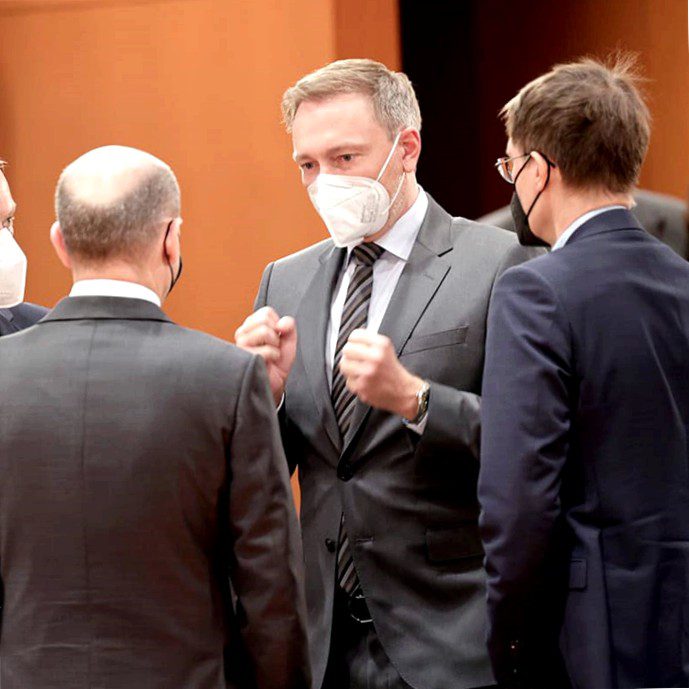
"Dare more progress" is what the SPD, Greens and FDP have chosen as the headline for their coalition agreement. But the promised progress, it seems to come to a halt. There are the socio-political projects, such as the abolition of the 219a StGB (German Penal Code), which prohibits the advertising of abortion, or a Democracy Promotion Act, which the traffic lights now want to tackle and on which there is largely unanimity in the coalition. At the same time, the coalition is struggling to cover up the cracks that are now appearing.
This was especially evident in last week's vote on mandatory vaccinations. Because such released votes, in which the group discipline does not apply, can become the much-invoked "star hours of the parliament". However, the debate on compulsory vaccination will rather go down in the history of the Bundestag as a debacle. No motion could find a majority – this once again put a spotlight on the very different opinions in the coalition on the topic of fighting Corona. These are apparently so diametrically opposed that simply no compromise was possible.

Chancellor Olaf Scholz – who himself had spoken out in favor of a general obligation to vaccinate and had also promised this for March at the latest – probably also evaded an open vote because it became clear relatively quickly that there would be no majority in the traffic light for a government draft. He left it to the parliamentary groups to agree, thus pushing the issue far away from the federal government itself. This attempt could have gone well if the Union had joined in. But there Scholz miscalculated. The CDU and CSU sometimes set out to show up the chancellor and refused to go along with any of the traffic light proposals. Thus, the coalition had to rely on its own majority, which it failed to achieve. SPD and Greens could have come to an agreement, but a large part of the FDP did not want to. The fact that a lot of time had passed in the meantime and that the Corona situation had changed as a whole was probably also not helpful.
It's not the first time that it's become quite clear: On the subject of the pandemic, the differences within the traffic light coalition are huge. Even before that, only a minimal compromise was reached on the Infection Protection Act, which was celebrated exclusively by the liberals. The Greens and SPD only agreed through gritted teeth – and made their displeasure known all the more afterwards.
All of this, especially the debacle over the mandatory vaccination vote, could prove a mortgage for the traffic light coalition. Because it will not have been the last time that it needs a decision in the matter of Corona. Further, now still unforeseeable crises can come in addition, some Ministers and Minister inside stand in the criticism, family Minister Anne mirror had to resign this week already.
Besides Corona, there are already planned topics, where the dispute is almost pre-programmed. There are for example the weapon supplies to the Ukraine. Nor have all the issues relating to the special defense fund been conclusively resolved (for which the CDU/CSU is again needed, which is why not just three but five parties, SPD, Greens, FDP, CDU and CSU, are negotiating there). In the energy transition and in domestic and security policy, too, there will be many points on which the road to agreement in the coalition will not be easy, to say the least – and in light of the experience of the past week, it may now threaten to become even more difficult.
Behind the scenes, grumbling in the "Progressive Coalition" has long been spreading – and, following the laws of Berlin business, also leads to publicly expressed discontent. Heike Baehrens, SPD health politician, recently said quite cautiously on Deutschlandfunk radio that it puts a strain on the traffic lights when the smallest coalition partner makes very rigid demands.
And that hits then also Federal Chancellor Olaf Scholz.
The behavior of the FDP triggers dynamics. If the Liberals could get their way on Corona, as they did, why shouldn't the other two coalition members demand the same when it comes to issues close to their hearts??
The chancellor cannot always release the vote when there is disagreement. It is Scholz's task to keep the centrifugal forces in the coalition under control so that this project does not blow up in his face – focusing solely on the projects on which there is already agreement is unlikely to be enough to turn the progress coalition into a stalemate coalition.